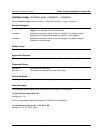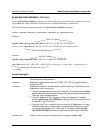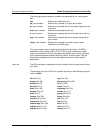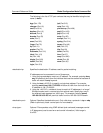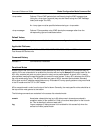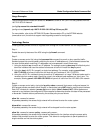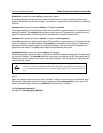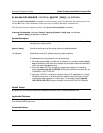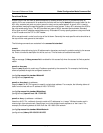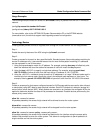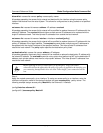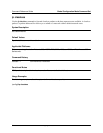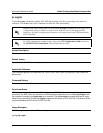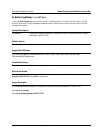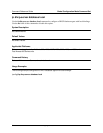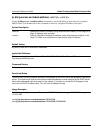
Command Reference Guide Global Configuration Mode Command Set
61200510L1-35E Copyright © 2005 ADTRAN 399
Functional Notes
Access control lists are used as packet selectors by access policies (ACPs); by themselves they do
nothing. ACLs are composed of an ordered list of entries with an implicit deny all at the end of each list. An
ACL entry contains two parts: an action (permit or deny) and a packet pattern. A permit ACL is used to
allow packets (meeting the specified pattern) to enter the router system. A deny ACL advances the AOS
to
the next access policy entry. The AOS
provides two types of ACLs: standard and extended. Standard
ACLs allow source IP address packet patterns only. Extended ACLs may specify patterns using most fields
in the IP header and the TCP or UDP header.
ACLs are performed in order from the top of the list down. Generally the most specific entries should be at
the top and the most general at the bottom.
The following commands are contained in the access-list standard:
remark
Associates a descriptive tag (up to 80 alphanumeric characters enclosed in quotation marks) to the access
list. Enter a functional description for the list such as “This list blocks all outbound web traffic.”
log
Logs a message (if debug access-list is enabled for this access list) when the access list finds a packet
match.
permit or deny any
Uses the any keyword to match any IP address received by the access list. For example, the following
allows all packets through the configured access list:
(config)#ip access-list standard MatchAll
(config-std-nacl)#permit any
permit or deny host <ip address>
Uses the host <A.B.C.D> keyword to specify a single host address. For example, the following allows all
traffic from the host with an IP address of 196.173.22.253.
(config)#ip access-list standard MatchHost
(config-std-nacl)#permit host 196.173.22.253
permit or deny <ip address> <wildcard>
Uses the <A.B.C.D> <wildcard> format to match all IP addresses in a “range.” Wildcard masks work in
reverse logic from subnet mask. Specifying a one in the wildcard mask equates to a “don’t care.” For
example, the following denies all traffic from the 192.168.0.0/24 network:
(config)#ip access-list standard MatchNetwork
(config-std-nacl)#deny 192.168.0.0 0.0.0.255



